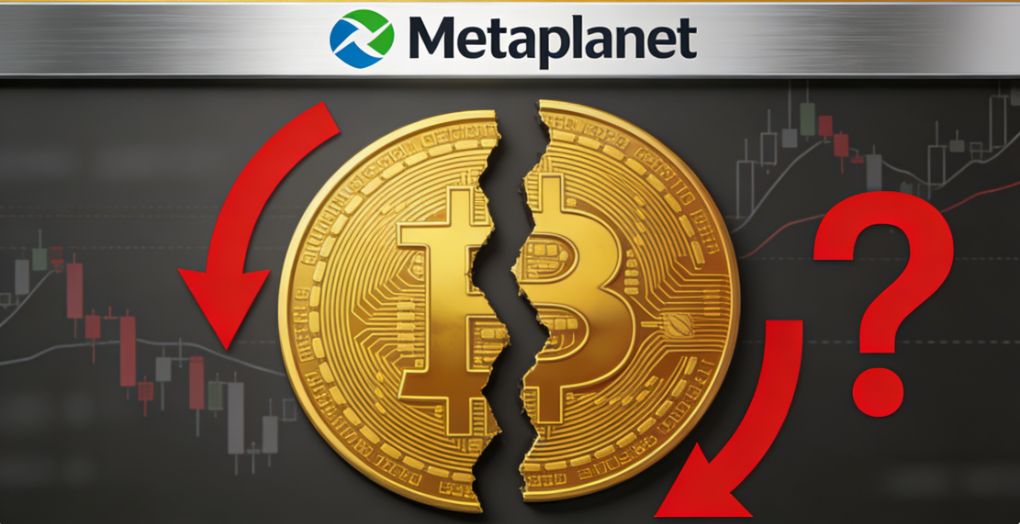AI: Microsoft Takes 27% of OpenAI
Artificial intelligence enters a new era with the official announcement from Microsoft: the tech giant now holds 27% of OpenAI. This stake, the result of a multi-billion dollar partnership, marks a strategic turning point for the industry. What are the stakes of this alliance and its repercussions on the AI market?
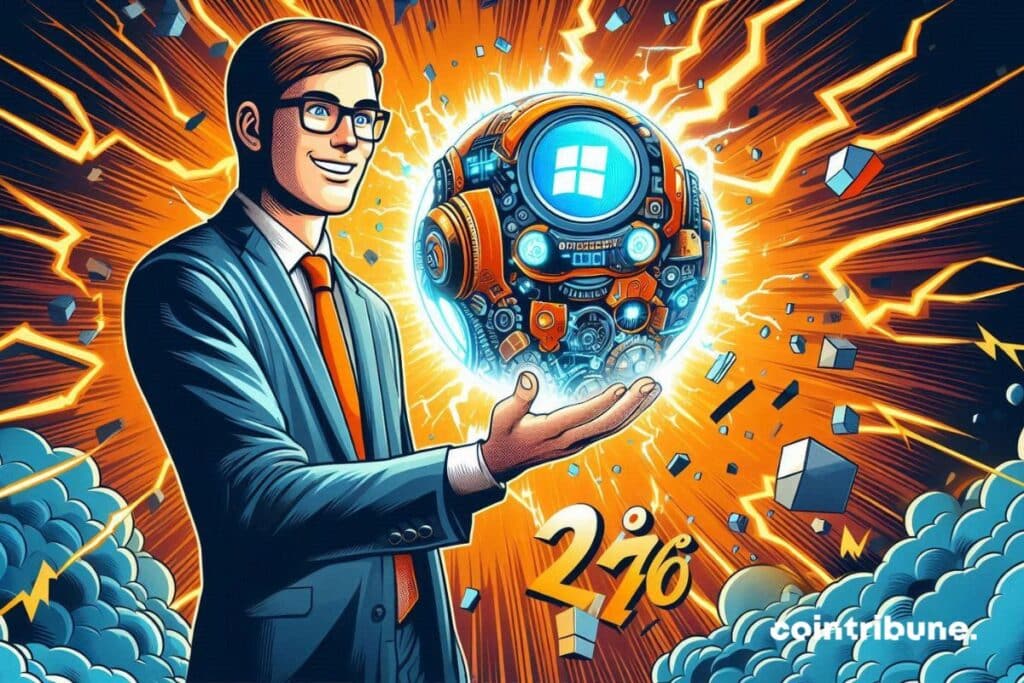
In Brief
- Microsoft now holds 27% of OpenAI, consolidating its leadership in AI with an investment exceeding $13 billion.
- OpenAI establishes itself as a strategic ecosystem, supported by major players like NVIDIA, Oracle, and governments.
- AI tokens emerge as an alternative to traditional cryptos like bitcoin, raising questions about their potential to dominate the economy.
AI: Microsoft Acquires 27% of OpenAI
One year after having sealed a surprise deal with OpenAI, Microsoft today confirms its holding of 27% of OpenAI’s shares! A revised figure, after initial speculations suggested 21%. This investment is part of a long-term collaboration, with over $13 billion injected since 2019. OpenAI, whose valuation reaches record highs, thus becomes a central pillar of Microsoft’s AI strategy.
The terms of this acquisition remain partially confidential, but Microsoft clearly strengthens its influence over OpenAI’s strategic decisions. This stake adds to an already advanced technological integration, notably via Azure AI and Copilot, which leverage OpenAI models like GPT-4.
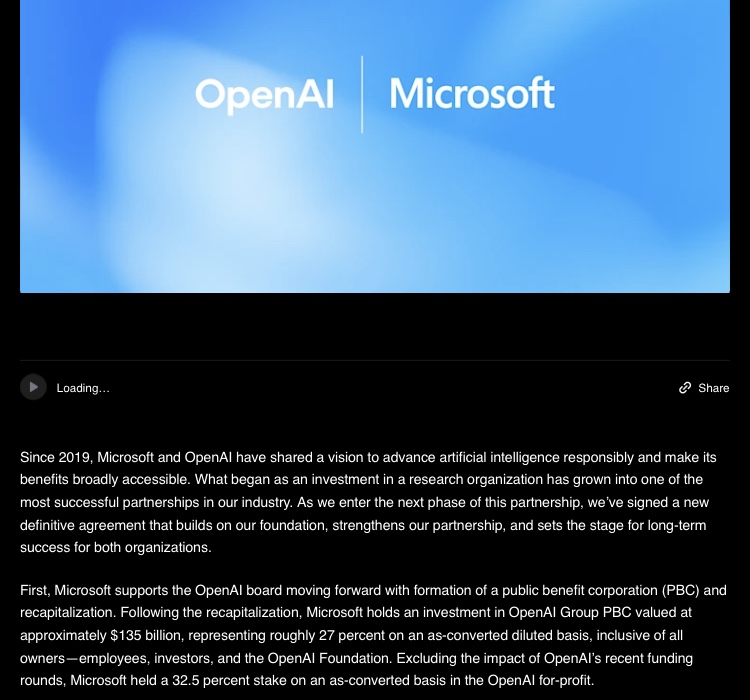 Microsoft now holds 27% of OpenAI
Microsoft now holds 27% of OpenAI
For Microsoft, the goal is to dominate the AI tools market, competing with rivals like Google and Amazon. An alliance that could accelerate AI adoption in companies while intensifying competition among tech giants.
OpenAI at the Heart of an AI Empire
The 27% acquisition of OpenAI by Microsoft shows that Sam Altman’s company is no longer a simple startup. Rather, it is an ecosystem supported by major players. Alongside Microsoft, companies like NVIDIA, Oracle, and SoftBank play key roles in its development. NVIDIA provides essential chips for training AI models, while Oracle offers robust cloud solutions. SoftBank, meanwhile, acts as a strategic investor.
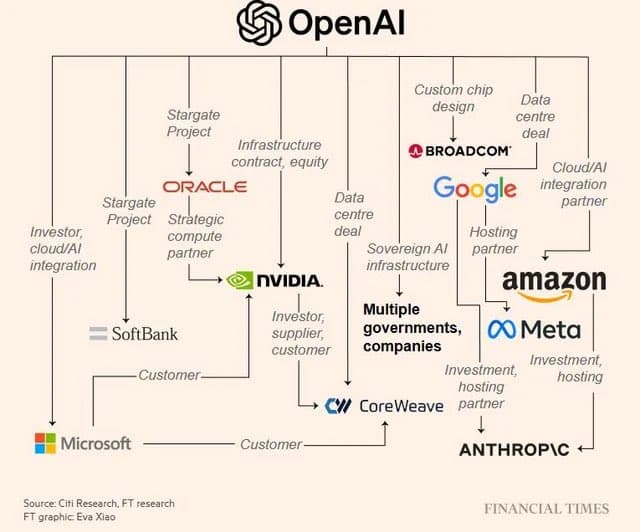 OpenAI’s AI Empire
OpenAI’s AI Empire
Governments and sovereign enterprises are also interested in OpenAI. Partnerships with entities like CoreWeave or states underline the geopolitical stakes of AI. Google, Amazon, and Meta are not standing still: each develops its own solutions, such as Gemini, Bedrock, or Llama, to counter the Microsoft-OpenAI alliance.
This concentration of players around OpenAI raises questions about innovation and competition. While it stimulates technological advances, it also risks creating monopolies, limiting access for small companies and startups.
AI Tokens VS Crypto: Could the Rise of AI Eclipse Bitcoin?
AI tokens are emerging as a new asset class, attracting investor attention. Unlike traditional cryptocurrencies like bitcoin , these tokens are often linked to decentralized AI platforms, offering concrete utility. Their growing popularity is explained by their integration into rapidly expanding technological ecosystems.
However, AI tokens face major challenges. Regulators closely watch these assets, fearing risks of speculation or manipulation. Their widespread adoption will depend on their ability to demonstrate tangible value beyond mere technological hype.
Could the rise of AI relegate bitcoin to the background? If AI tokens gain credibility, they could complement or even compete with traditional cryptocurrencies. The coming years will be decisive in determining whether AI becomes the new engine of decentralized finance.
The alliance between Microsoft and OpenAI marks a turning point in the artificial intelligence industry, with major implications for tech and financial players. As AI tokens gain ground, one question remains: is artificial intelligence redefining the rules of the economic game?
Disclaimer: The content of this article solely reflects the author's opinion and does not represent the platform in any capacity. This article is not intended to serve as a reference for making investment decisions.
You may also like
Morning News | Infrared to conduct TGE on December 17; YO Labs completes $10 million Series A financing; US SEC issues crypto asset custody guidelines
A summary of major market events on December 14.

Crypto ETF Weekly Report | Last week, US Bitcoin spot ETFs saw a net inflow of $286 million; US Ethereum spot ETFs saw a net inflow of $209 million
Bitwise's top ten crypto index fund has officially been listed and is now trading as an ETF on NYSE Arca.
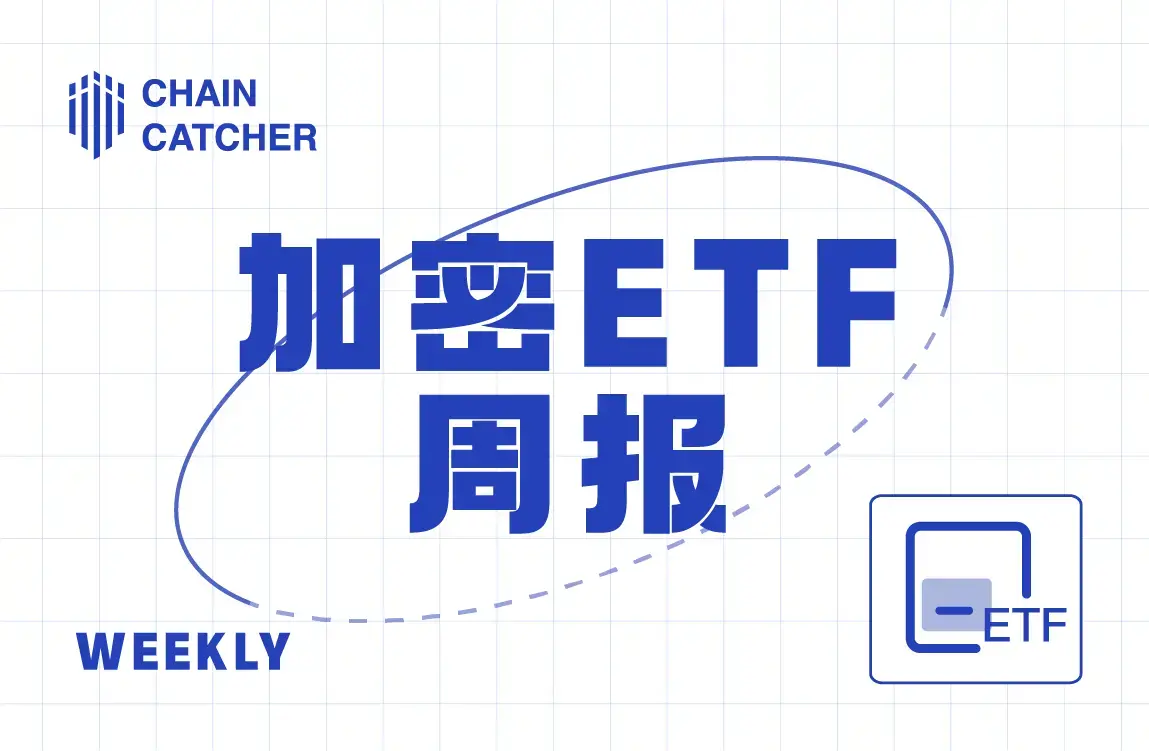
Banding Together in the Bear Market to Embrace Investors! Crypto Tycoons Gather in Abu Dhabi, Calling the UAE the "New Wall Street of Crypto"
As the crypto market remains sluggish, industry leaders are pinning their hopes on investors from the UAE.

Behind the Pause in Increasing BTC Holdings: Metaplanet’s Multiple Considerations
